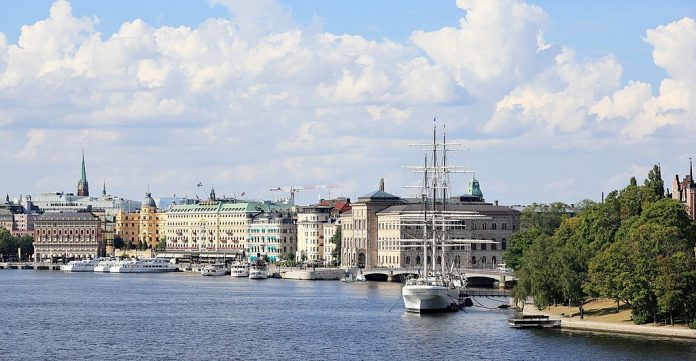World leaders and representatives from government, business, international organizations, civil society and youth will gather in Sweden 2 and 3 June 2022, for Stockholm+50 – an international meeting to drive action towards a healthy planet for the prosperity of all.
The event comes at a crucial time as the Earth is in emergency mode, and urgent action is needed to address the triple planetary crisis of climate change, nature and biodiversity loss, and pollution and waste.
So what exactly is Stockholm+50, and why is it important?
What is Stockholm+50?
Co-hosted by Sweden and Kenya, Stockholm+50 will take place under the theme “a healthy planet for the prosperity of all – our responsibility, our opportunity.”
The two-day meeting will commemorate the 50th anniversary of the United Nations Conference on the Human Environment in Stockholm – which marked a new era of global cooperation.

At the 1972 conference, 113 countries adopted the Stockholm Declaration and Action Plan for the Human Environment, placing environmental issues at the forefront of international concerns. The conference also led to the creation of the UN Environment Programme (UNEP) and began an important dialogue between industrialized and developing countries on the links between the environment, economic growth and human well-being.
Stockholm+50 marks a milestone in our collective journey toward a healthy planet. It offers the opportunity to reflect on, celebrate and build upon 50 years of environmental action.
The meeting will be organized around plenary segments, three leadership dialogues and side events that will focus on the importance of multilateralism in tackling the triple planetary crisis.
It will also reinforce the outcomes of the fifth UN Environment Assembly, which took place earlier this year in Nairobi, Kenya.
Mrs. Indira Gandhi, former Prime Minister of India, addresses the 1972 Stockholm Conference. Photo: UN Photo/Yutaka Nagata
What is the triple planetary crisis?
The triple planetary crisis consists of three interlinked issues threatening human and environmental health: climate change, nature and biodiversity loss, and pollution and waste.
The climate crisis is causing more frequent extreme weather events such as storms and droughts, which worsen food and water scarcity. Research shows that to stave off a climate catastrophe, the world must halve annual greenhouse gas emissions by 2030 to reach net-zero by 2050.
Human activities have modified 77 per cent of land (excluding Antarctica) and 87 per cent of the ocean. More than 2 billion hectares of land is degraded due to overuse or mismanagement. and one million species face extinction.
Air pollution, the greatest environmental threat to public health globally, accounts for an estimated 7 million premature deaths every year. 11 million metric tons of plastic waste enter our ocean every year. At the same time, we produce 50 million tons of e-waste.
How will Stockholm+50 address the planetary emergency?
Stockholm+50 will help accelerate the implementation of the 2030 Agenda and the Sustainable Development Goals to achieve a healthy planet – which is essential for social and economic progress, well-being, and resilience.
By gathering a broad set of stakeholders from all around the world, the meeting will emphasize the importance of a multi-actor, multi-sector approach to addressing environmental issues and embody the importance of collaborative action. Stockholm+50 also highlights our intergenerational responsibility to protect the Earth and ensure that life support systems are available to all.
For 50 years, the world has come together to confront the planet’s biggest environmental challenges, from eradicating the production of leaded fuel to protecting more than 38,000 species and mending the hole in the ozone layer. This global cooperation has restricted the international trade in mercury, banned hazardous chemicals and reduced renewable energy prices.
But 50 years on, the need to accelerate action for the environment, poverty alleviation and human rights is more urgent than ever.
Stockholm+50 provides a unique opportunity to be another turning point and steer humanity back on the path to a healthy planet and the prosperity of all.
Follow the Stockholm+50 feed for updates.






